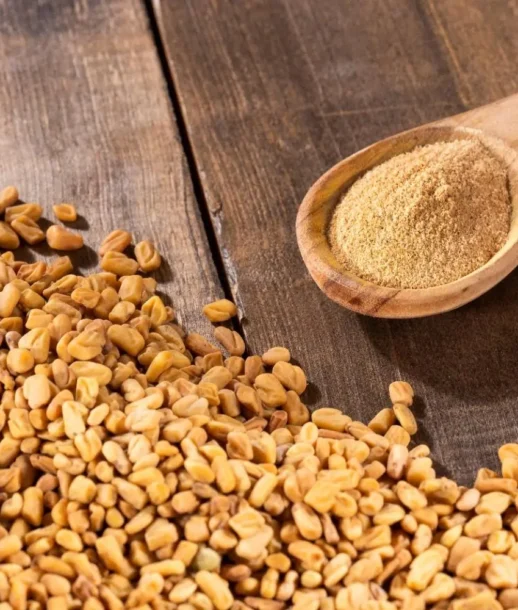Fenugreek (Trigonella foenum-graecum) is an annual plant in the pea Family (Fabaceae). It is native to southern Europe and the Mediterranean region, but is now cultivated worldwide. Fenugreek is a popular herb and spice in many cui- sines, including Indian, Middle Eastern, and North African.
Fenugreek has a distinctive maple syrup-like flavor and aroma. The seeds are most commonly used, but the leaves and sprouts are also edible. Fenugreek seeds can be eaten whole, roasted, or ground into a powder. They are often used in curries, stews, and other savory dishes. Fenugreek leaves are often used in salads and stir-fries. Fenugreek sprouts can be eaten raw or cooked.
In addition to its culinary uses, fenugreek has also been used for centuries in traditional medicine. It is thought to have several health benefits, including:
- Lowering blood sugar levels
- Improving cholesterol levels
- Increasing milk production in breastfeeding women
- Reducing inflammation
- Boosting testosterone levels
- Improving digestive health
Fenugreek is generally safe for most people to consume in moderation. Howev- er, it can interact with certain medications, such as blood thinners and diabetes medications. It is important to talk to your doctor before consuming fenugreek, especially if you have any underlying health conditions or are taking any medications
Botanical description of fenugreek:
- Habit: Erect, smooth, herbaceous annual plant, up to 1 meter tall.
- Roots: Taproot.
- Stems: Erect, up to 50 cm high, sometimes branched.
- Leaves: Alternate, compound, trifoliolate, 7-12 cm long, light green in color. Leaflets are oval, up to 5 cm long, hairy on their lower face.
- Flowers: Papilionaceous, borne in leaf axils, white, lemon-yellow or purplish blue in color.
- Fruits: Straight or sickle-like pods, 2-10 cm long, thin and pointed, containing 10-20 seeds.
- Seeds: Cubaid, yellow to amber-colored, smooth and oblong, about 3mm long, each grooved across one corner, giving them a hooked appearance. Fenugreek plants have a distinctive maple syrup-like flavor and aroma. The seeds are the most commonly used part of the plant, but the leaves and sprouts are also edible.
Fenugreek is a native of southern Europe and the Mediterranean region but is now cultivated worldwide. It is especially popular in India, where it is used in many traditional dishes.
Fenugreek contains a wide variety of chemical constituents, including:
- Flavonoids: These compounds have antioxidant and anti-inflammatory properties. Some of the Flavonoids Found in Fenugreek include quercetin, luteolin, and vitexin.
- Alkaloids: These compounds have a variety of biological effects, including lowering blood sugar levels and increasing testosterone levels. The most prevalent alkaloid in fenugreek is trigonelline.
- Coumarins: These compounds have anticoagulant and anti-inflammatory properties. Some of the coumarins found in Fenugreek include cinnamic acid and scopoletin.
- Saponins: These compounds have a variety of biological effects, including lowering cholesterol levels and reducing inflammation. The most abundant saponins in fenugreek are diosgenin and tigogenin.
- Other constituents: Fenugreek also contains a variety of other constituents, including vitamins, minerals, and amino acids. Some of the notable constituents include fiber, iron, calcium, and magnesium.
The chemical constituents of fenugreek are responsible for its many potential health benefits. For example, the flavonoids in fenugreek are thought to be responsible for its antioxidant and anti-inflammatory properties. The alkaloids in fenugreek are thought to be responsible for their ability to lower blood sugar levels and increase testosterone levels. The saponins in fenugreek are thought to be responsible for its ability to lower cholesterol levels and reduce inflammation.

